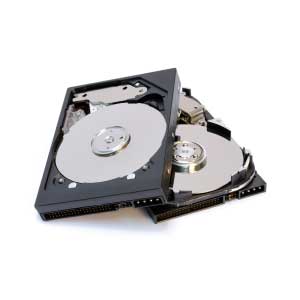April 26, 2017
Study Shows 40% of All Used Devices Contain Private User Data
 Here’s How To Protect Yourself From Data Theft
Here’s How To Protect Yourself From Data Theft
Have you ever sold or recycled a used laptop, cell phone, or tablet? According to the largest study to date by the National Association for Information Destruction (NAID), as much as 40% of used devices sold online contain personally identifiable information. From credit card numbers to passwords and usernames, many of us often forget that our electronic devices are filled with confidential information that can be easily accessed.
Understanding The Statistics
This study reveals just how easy it is for our private information to fall into the wrong hands. Stored on old cell phones and hard drives, our electronic devices are digital filing cabinets packed full of personal data. Without taking proper precautions, reselling these products online or dumping them into the trash is an open invitation to steal private data. More importantly though, we need to understand what information is accessible and how it is compromised.
What is personally identifiable information?
Using a sample size of 250 used devices, NAID found that more than 40% of all devices were filled with personal information. Here are the most common types of personal data found on used and discarded devices:
- The most common type of personal data was personal contact information – including work emails, private phone numbers, and family addresses. This is the type of information that can be leveraged into identity theft given enough data.
- The second most common type of personal data was password and username information. With modern apps and web browsers, we often use autofill settings to sign in and remember passwords. However convenient this feature is, it gives unauthorized users one-touch access to our email correspondence, bank account information, cloud storage system, and more.
- With mobile banking apps and online credit card statements, we often file this information electronically, assuming our private financial records and credit card numbers are kept safe inside our computers. Unfortunately though, this is the third most common type of stolen personal data. With remote bank account access and detailed information about our purchasing habits, hackers and unauthorized users can try to leverage this data into financial fraud.
- Last, we find that confidential business records are the fourth most common type of data found on used or discarded devices. Buried in our emails, there are hundreds of private messages between clients and coworkers filled with financial information and private business communications. These emails are surprisingly accessible via any device’s built-in email client. Depending on your industry, the unauthorized release of this information could result in a data breach and subsequent lawsuit.
How is this information accessed?
Some devices are worse offenders than others when it comes to storing your personal information. Surprisingly, mobile phone and smartphones were recorded as having the lowest rate of personally identifiable information at roughly 13% of smartphone devices. On the other hand, 50% of used or discarded tablets were still filled with confidential information while 44% computers and hard drives still contained private data.
It Doesn’t Take A Hacker
Perhaps most surprisingly of all, this study did not involve any type of complex hacking. Without any training or advanced tech skills, the team at NAID could access private user information on 40% of all used and discarded devices. It doesn’t take a hacker to steal your private information. It just requires a small misstep in forgetting to reset your old device or failing to dispose of it properly.
Users often forget that the private information contained on your laptop, hard drive, or tablet is every bit as valuable as the paper documents in your safe deposit box. Whether you plan on trashing your old electronics or selling them second-hand, you need to be taking adequate precautionary measures to protect your privacy.
 Keeping Your Information Safe
Keeping Your Information Safe
When you have old electronics, there are only two responsible ways to get rid of these products without compromising your data: selling and disposing. If you are selling your device online or giving it away to family and friends, make sure the entire system is reset to factory settings. After performing the reset, test the device to make sure that all traces of personal information are eliminated before giving it to someone else.
If you don’t plan on selling your device, then it needs to be discarded and recycled safely. Simply throwing it in the trash is often illegal due to environmental contamination rules, and it also highly risky because the device the be easily stolen. Every year there are hundreds of cases of old computers stolen from the trash, which lead to cases of identity theft. At Proshred Security, we recommend that all hard drives units, storage devices, and other electronic media systems are properly destroyed by an industrial shredder. This is the only guaranteed method to make data retrieval impossible
When you need to dispose of your electronic media, trust the team at Proshred Indianapolis. We ensure that your device is rendered digitally inoperable so that your confidential information is never compromised. All waste products are also recycled responsibly in accordance with local and federal regulations. Trust the team at Proshred for your electronic disposal needs.
To read the NAID Press Release, click here.

 Here’s How To Protect Yourself From Data Theft
Here’s How To Protect Yourself From Data Theft Keeping Your Information Safe
Keeping Your Information Safe